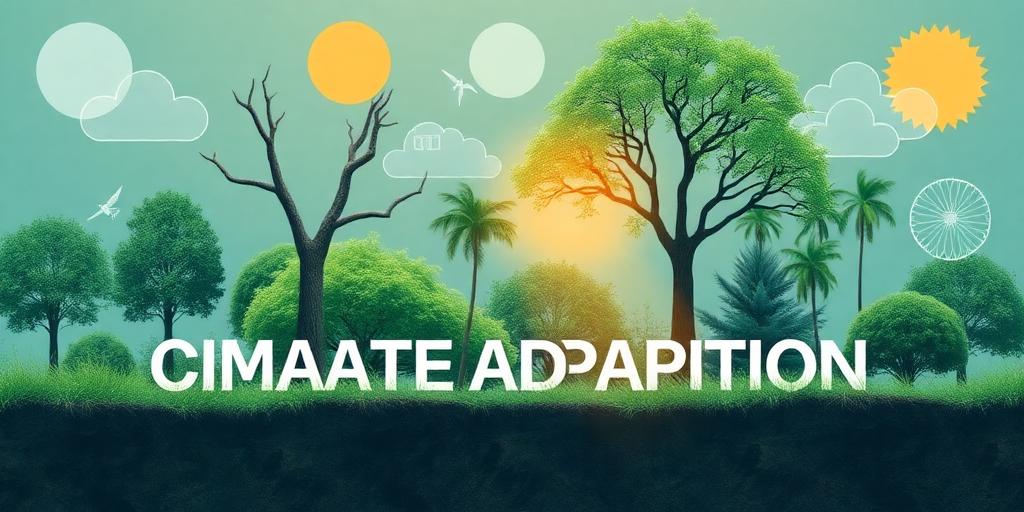Scientific Insights into Climate Adaptation
Climate adaptation refers to adjustments in ecological, social, or economic systems in response to actual or expected climatic effects and their impacts. It encompasses a wide range of actions, from large-scale infrastructure projects to individual behavior changes. Understanding the scientific underpinnings of climate adaptation is crucial for developing effective strategies to mitigate the adverse effects of climate change.
Understanding Climate Risks
At the core of climate adaptation is a comprehensive understanding of climate risks. Scientific research provides detailed insights into how climate change is manifesting regionally, including changes in temperature, precipitation patterns, sea levels, and the frequency of extreme weather events. This knowledge enables policymakers and communities to anticipate and prepare for potential impacts.
- Temperature Changes: Studies show a clear trend of increasing global temperatures, leading to heatwaves and altered growing seasons.
- Precipitation Variability: Research indicates that some regions will experience increased flooding, while others will face prolonged droughts.
- Sea Level Rise: Scientific models project continued sea level rise, threatening coastal communities and ecosystems.
Ecosystem-Based Adaptation
Ecosystem-based adaptation (EbA) leverages the natural functions of ecosystems to enhance resilience to climate change. Scientific research supports the effectiveness of EbA strategies, highlighting the multiple benefits they provide.
- Reforestation: Studies demonstrate that forests can help regulate water cycles, reduce soil erosion, and sequester carbon, enhancing overall ecosystem resilience.
- Wetland Restoration: Wetlands act as natural buffers against flooding and storm surges, protecting coastal areas from climate impacts.
- Sustainable Agriculture: Promoting drought-resistant crops and water-efficient irrigation techniques can enhance agricultural productivity under changing climate conditions.
Technological Innovations
Technological advancements play a significant role in climate adaptation. Scientific research and development drive the creation of innovative tools and technologies that can help communities adapt to climate change.
- Climate-Resilient Infrastructure: Developing infrastructure that can withstand extreme weather events is crucial. Research focuses on materials and designs that enhance durability and resilience.
- Early Warning Systems: Advanced monitoring and prediction systems can provide timely warnings of impending climate hazards, allowing communities to prepare and respond effectively.
- Water Management Technologies: Innovations such as desalination and water recycling can help address water scarcity issues in drought-prone regions.
Social and Behavioral Adaptations
In addition to technological and ecological strategies, social and behavioral adaptations are essential for building climate resilience. Scientific insights from social sciences help understand how communities perceive and respond to climate risks.
- Community Engagement: Research emphasizes the importance of involving local communities in adaptation planning to ensure that strategies are culturally appropriate and effective.
- Education and Awareness: Raising awareness about climate change and adaptation options can empower individuals to take proactive measures to protect themselves and their communities.
- Policy and Governance: Developing and implementing policies that support climate adaptation is critical. Scientific evidence informs policy decisions, ensuring that they are based on sound understanding of climate risks and adaptation options.
Conclusion
Climate adaptation is a multifaceted challenge that requires a comprehensive and scientifically informed approach. By integrating insights from climate science, ecology, technology, and social sciences, we can develop effective strategies to enhance resilience and minimize the adverse impacts of climate change. Continued investment in scientific research and innovation is crucial for building a climate-resilient future.
Long-tail keywords: climate adaptation strategies, scientific research climate change, ecosystem-based climate adaptation, technological innovations climate adaptation, social adaptations climate resilience









